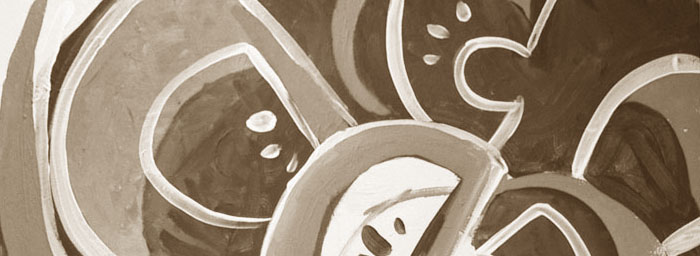Hey internet,
I've been really distracted lately, because I am moving from Colorado to Oregon, and I just bought a car, and I just found a place to rent, and I have been cleaning and packing and quitting my job and feeling anxious and exhausted and just not quite right, but also excited as all hell, and the skies have been lovely and I've had some good times and I don't have to work for a few weeks which is just fantastic.
I have read some books:
I read DFW's Infinite Jest, which is like watching an explosion in reverse motion slowing down and slowing down as it goes. It's maybe a little self indulgent, but it is nothing short of incredible. If you have a month or so with absolutely nothing to do, like if you're trapped in a hospital bed or something, or if you want to just amble through a book over the course of a few years (which is also a enjoyable way to read it, I hear), it's a good one to pick up. Mr. Wallace does his research, and it shows. And I agree with Dave Egger's introduction to my edition: as much of a mountain as this book is to climb, it is friendly in its own way, the language itself flowing easily over you. This is not Finnegan's Wake by any means. It's not even House of Leaves. It's just big mostly. And fairly convoluted. There's a lot going on in a very short amount of (chronological) time, considering the size of the thing. And it's kind of always just on the verge of chaos, with only a few little bursts of outright madness, and even those seem to happen in a kind of slow-mo ballet of discord sort of way. Nothing rushes by. We take our time with details. And there are a lot of them. Details. So many. Minutia of every stripe and color. It makes me want there to be a "Making Of" feature to watch (or read) after I'm through with it. To see the sorts of planning and structuring that went into it. To see more deleted scenes (it has a few that sort of are. Deleted scenes. They show up as footnotes here and there. Not quite the novel proper, but a sort of side quest for the inquisitive.) and casting and whatever else. It would be fun I think. It also has an infectious language; I find myself wanting to say 'howling fantods' and any time anyone uses the word 'chortle' in the future I'm going to at least think, if not say, 'Chortles. Chortles are good. We like chortles.' The book is absolutely fascinating in all sorts of ways, and it's the sort of thing you have to see to believe. Gold Star for Mr. Wallace. Recommended.
I read Homer's two books. The first one is a bit overblown. Anything that involves Achilles directly is wonderful, he is by far the most interesting character, and the chapter about his shield is fantastic. But overall it got tiring just hearing who killed who for pages and pages with nothing much else going on. The gods have some fun scenes, but mostly in the service of getting us to yet longer lists of the newly dead.
The Odyssey on the other hand is fantastic. Odysseus is no Superman, and while he is bigger and stronger and smarter than your average Greek, he gets his share of knocks on the head before making it home. He is not a modern hero. Those who have committed crimes against him are killed without mercy even though they beg forgiveness and promise to repay the debt tenfold. These days if a villain begs forgiveness and the hero kills him anyway, something twisted is going on. We can only have that happen if we do not believe that the villain is really sorry, and only if they've done some pretty terrible stuff. These guys thought Odysseus was dead. So they were trying to marry his wife. Who let them live in his/her house and eat his/her livestock. (Sidenote: it'd be crazy for the Greeks to think of any of it as belonging to the wife, but really. She was there for 20 years on her own. It's her stuff.) And refused to either kick them out or marry them. So she was just as much to blame as any of them were. And as soon as people realized that Odysseus was alive they realized that they had made a mistake. And it was an understandable mistake, the man had been gone 20 years. Plenty of time to declare him deceased. So when he showed up they apologized and said they'd make it up to them. And he said, "Nope, I'm gonna kill every last one of you." And so he did. Our present morality makes Odysseus into a monster. So that's interesting. The other really interesting thing is that The Odyssey has an addressee. The Loyal Swineherd, a servant of Odysseus, is referred to by the poet in the second person. You. In the Odyssey, 'You' is the loyal swineherd. That was something I didn't know before reading it. And so the direct address coupled with the swineherd's story of remaining loyal to his long gone lord and being rewarded for welcoming in a broken stranger (the lord in disguise) and taking care of him and praying for the unlikely return of the lord just sent my brain spiraling into new-testament land, thinking about waiting for the second coming and all that, and I may have just been being crazy but it started to seem like the second coming of Jesus stuff is some kind of metaphorical projection of Odysseus onto Jesus and it started seeming like that made the horrific violence of Revelations make more sense, but then I had to go and start thinking about Jung and whether this sort of thing is just archetypal symbols in the collective unconscious or if I'm just way out of my depth and need to come back to land.
So then I read The Perks of Being a Wallflower, to kind of come back to earth a bit. Because of juxtaposition I found it paralleling Infinite Jest in a number of ways. They are both books that happen in the wake of a suicide, with main characters that are precarious, gifted, substance abusing adolescents and a mood that is both happy and sad at the same time. It may just be that the list of leitmotifs in Infinite Jest is big enough to include just about anything, but The Perks felt like a book written in a sub-set of Infinite Jest themes. It was no where near as encompassing. But it was beautiful. I did have a Bad Ending! reaction, but I guess that happens sometimes. Can't win every time.
I don't think I've mentioned Chip Kidd's The Learners on here, or Herman Hesse's Siddhartha. Both of those were pretty great. Chip Kidd is just wonderful. Awesome guy. I want to have pizza and a soda with him. Siddhartha was a bit unbalanced, but the parts that were spot on were spot on, and it had a nice arc to it. Overall a good time.
So that's sort of where I've been.
More on various other things soon.
There's more cleaning and packing to do.
Have a nice weekend Internet.
Be sure and enjoy whats left of the Olympics.
I'll be back real soon.
Sunday, August 24, 2008
Subscribe to:
Post Comments (Atom)


No comments:
Post a Comment